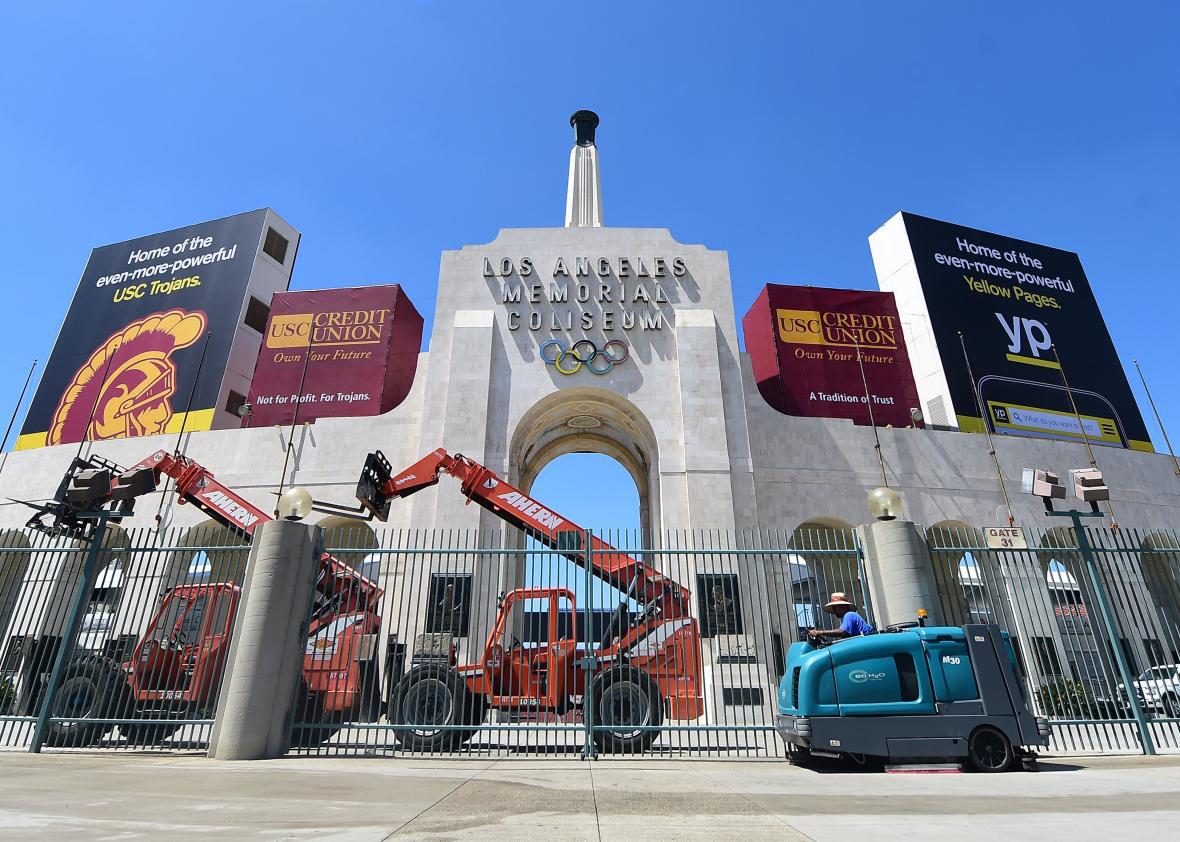Los Angeles will be the American bid city for the 2024 Olympics, the United States Olympic Committee announced on Tuesday.
Los Angeles, which will be competing against Paris, Rome, Hamburg and Budapest among other potential cities, got the formal USOC endorsement after city council members voted 15-0 to support the bid.
The move comes after the USOC’s calamitous initial selection of Boston as its 2024 bid city, which resulted in massive public opposition and ultimately a reversal of the decision.
The potential for cost overruns that would have had to be covered by the city, in line with an agreement that the International Olympic Committee forces host cities to sign, was one of the principal concerns for Boston 2024 opponents. According to the Los Angeles Times, the new bid city’s mayor, Eric Garcetti, has promised to sign such a contract.
As Henry Grabar outlined in Slate in July, a Los Angeles bid potentially makes more sense than the Boston bid ever did. The city has the experience of hosting the Games successfully in 1932 and 1984, along with the existing facilities with which that comes.
It also has the backing of city officials and the public, with recent USOC polling putting support for the bid at 81 percent and opposition at 11 percent, according to the Times.
While Olympic costs are incredibly difficult to predict and usually result in budget overruns, Garcetti has projected an estimated $161-million surplus in his Olympic plan, which will be centered around the use of established facilities like the Coliseum, Staples Center, and Pauley Pavilion. Such a surplus would not be unprecedented. “With a mix of private-sector funding, television profits, corporate sponsorship, and adaptive reuse, the [1984] Los Angeles Games showed the way toward a profitable Olympics,” Grabar wrote. “The $232 million revenue from the Games funded a nonprofit, LA84, that supported sports in poor communities.”
The draft bid called for a $4.1 billion budget, which did not include hundreds of millions in insurance premiums and a contingency fund for cost overruns, or an estimated additional $1.7 billion from private investors.
While the existing venues might make Olympic costs in Los Angeles more sensible than in other cities, there’s no guarantee that the bid will ultimately meet projections. The Times estimated that renovating the Coliseum would cost $500 million, while another $1 billion is estimated for an athletes village. But city analysts have said village costs could be much higher, according to the Times.
The vote for the 2024 Olympics is scheduled to take place in the summer of 2017.
